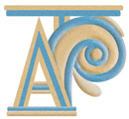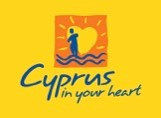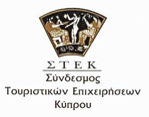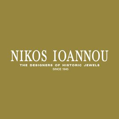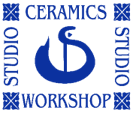 University of Cambridge is a world-class institution with world-class facilities. The McDonald Institute at Cambridge has state of the art laboratories focusing on different branches of archaeological science and interpretation: Archaeobotany and Archaeogenetics (Prof. M. Jones), Isotope Analysis (Dr T. O’Connell), Zooarchaeology (Dr P. Miracle), Geoarchaeology (Prof. C. French), Material Culture (Drs J. Robb & E. DeMarrais), Geographical Information Systems (Drs S. Stoddart & C. Petrie) and Computing (Dr C. Petrie). In connection to the project, the Pitt Rivers Laboratory for Bioarchaeology has the infrastructure and facilities. The McDonald Institute supports around 30 post-doctoral fellows and the Division of Archaeology 15 full-time academic staff, ca 100 PhD and 30 Masters students with research foci around the world. Dr O’Connell is the Director of the Dorothy Garrod Laboratory for Isotope work and she supervises MSc and PhD students in the following research areas, using stable isotope analysis: Palaeodiet, Palaeoclimate, Ecological studies of foodwebs, Nutrition and epidemiology and Biomolecular analysis of human and animal remains. The analytical equipment used consist of: Continuous flow isotope ratio mass spectrometry: Thermo Finnigan Delta V and MAT253 mass specs with various peripherals including EA, TCEA, gas bench and Kiel device. Dr Micthell runs the Cambridge paleoparasitology laboratory, one of the top five such facilities in the world.
University of Cambridge is a world-class institution with world-class facilities. The McDonald Institute at Cambridge has state of the art laboratories focusing on different branches of archaeological science and interpretation: Archaeobotany and Archaeogenetics (Prof. M. Jones), Isotope Analysis (Dr T. O’Connell), Zooarchaeology (Dr P. Miracle), Geoarchaeology (Prof. C. French), Material Culture (Drs J. Robb & E. DeMarrais), Geographical Information Systems (Drs S. Stoddart & C. Petrie) and Computing (Dr C. Petrie). In connection to the project, the Pitt Rivers Laboratory for Bioarchaeology has the infrastructure and facilities. The McDonald Institute supports around 30 post-doctoral fellows and the Division of Archaeology 15 full-time academic staff, ca 100 PhD and 30 Masters students with research foci around the world. Dr O’Connell is the Director of the Dorothy Garrod Laboratory for Isotope work and she supervises MSc and PhD students in the following research areas, using stable isotope analysis: Palaeodiet, Palaeoclimate, Ecological studies of foodwebs, Nutrition and epidemiology and Biomolecular analysis of human and animal remains. The analytical equipment used consist of: Continuous flow isotope ratio mass spectrometry: Thermo Finnigan Delta V and MAT253 mass specs with various peripherals including EA, TCEA, gas bench and Kiel device. Dr Micthell runs the Cambridge paleoparasitology laboratory, one of the top five such facilities in the world.
Key Personnel
Dr Piers Mitchell
Dr Piers Mitchell is an expert in paleoparasitology, and has had extensive training in this field, and has subsequently engaged in research activity within this new and exciting field for over a decade. Dr Mitchell also holds a medical degree (University of London), and is thus ideally placed to investigate and interpret the health consequences of parasite infestation both at the level of the individual, as well as at the population level. Dr Mitchell has also been educated in archaeology and ancient history of disease (University of London, MSc). Dr Mitchell has extensive experience in supervising research into human health in the Eastern Mediterranean, particularly during the medieval period, with focus on the crusades. Dr Mitchell has directed several research projects focusing on intestinal parasites and dysentery, including analyses of archaeological latrine and cesspool soil deposits, as well as burials from Acre (13th century latrines and cesspools), Lajjun (Mamluk period [13th-15th c.] cesspool), Order of St. John 13th century military complex at Acre, Qumran (1st century CE latrine in a community of Essenes by the Dead Sea), and Tel Safi (Iron Age and Crusader period burials sampled for parasites). He runs one of the top 5 ancient parasite laboratories in the world, is the current president of the Paleopathology Association (the worldwide organisation for the study of ancient diseases), has published 6 books and 126 articles, has a large number of media articles written about his research, and has had 12 TV programs made about his research.
Dr Tamsin O’Connell
Dr O’ Connell is presently involved in the following research projects: (1) Nutritional biomarkers in epidemiology (with University of Reading and MRC-Epi, Cambridge); (2) The Portus ProjectERC Funded; (3) The Trans-SAHARA project, an ERC project headed by Prof. David Mattingley at University of Leicester; (4) The FRAGSUS Project: fragility and sustainability in the restricted island environments. Dr O’Connell is the Director of the Dorothy Garrod Laboratory for Isotope work and she supervises MSc and PhD students in the following research areas, using stable isotope analysis: Palaeodiet, Palaeoclimate, Ecological studies of foodwebs, Nutrition and epidemiology and Biomolecular analysis of human and animal remains. The analytical equipment used consist of: continuous flow isotope ratio mass spectrometry: thermo Finnigan Delta V and MAT253 mass specs with various peripherals including EA, TCEA, gas bench and Kiel device.



